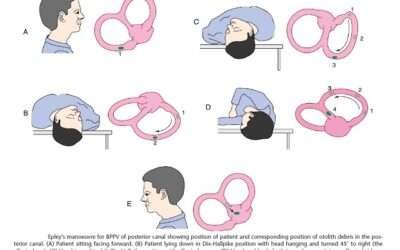BASLP 3rd Semester Notes » Paper 3: Diagnostic Audiology: Behavioural Tests
Unit 1: Introduction to Diagnostic Audiology
- Characteristics of a diagnostic test, the difference between screening and diagnostic test, functions of a diagnostic test in Audiology
- Need for test battery approach in auditory diagnosis and integration of results of audiological tests, cross-check principle
- Concept of sensitivity, specificity, true positive, true negative, false positive, false negative, hit rate
- Definition of behavioural and physiological tests and their characteristics in diagnostic audiology
- Theories and physiological bases of recruitment
- Theories and physiological bases of adaptation
- Clinical indications for cochlear pathology, retro-cochlear pathology, central auditory processing disorders, functional hearing loss, vestibular disorders
Disorders of Vestibular System
Disorders of vestibular system cause vertigo and are divided into: Peripheral, which involve vestibular end organs and their 1st order neurons (i.e. the vestibular nerve). The cause lies in the internal ear or the VIIIth nerve. They are responsible for 85% of all...
Functional (Non organic) Hearing Loss or Pseudohypacusis
Functional (Non organic) Hearing Loss or Pseudohypacusis: Functional hearing loss involves a psychological or emotional problem, rather than physical damage to the hearing pathway. Individuals with this type of hearing loss do not seem to hear or respond; yet, in...
Follow us on
For more updates follow us on Facebook, Twitter, Instagram, Youtube and Linkedin
Contact us
Contact us for any query related to Audiology & Speech Language Pathology Courses
About us
Contact us for any query related to Audiology & Speech Language Pathology Courses


